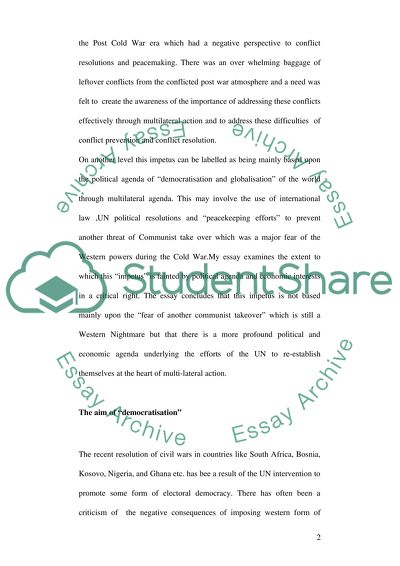Cite this document
(“To what extent did the end of the Cold War provide an impetus for the Essay”, n.d.)
To what extent did the end of the Cold War provide an impetus for the Essay. Retrieved from https://studentshare.org/miscellaneous/1546624-to-what-extent-did-the-end-of-the-cold-war-provide-an-impetus-for-the-united-nations-to-try-to-re-establish-itself-at-the-heart-of-multi-lateral-action
To what extent did the end of the Cold War provide an impetus for the Essay. Retrieved from https://studentshare.org/miscellaneous/1546624-to-what-extent-did-the-end-of-the-cold-war-provide-an-impetus-for-the-united-nations-to-try-to-re-establish-itself-at-the-heart-of-multi-lateral-action
(To What Extent Did the End of the Cold War Provide an Impetus for the Essay)
To What Extent Did the End of the Cold War Provide an Impetus for the Essay. https://studentshare.org/miscellaneous/1546624-to-what-extent-did-the-end-of-the-cold-war-provide-an-impetus-for-the-united-nations-to-try-to-re-establish-itself-at-the-heart-of-multi-lateral-action.
To What Extent Did the End of the Cold War Provide an Impetus for the Essay. https://studentshare.org/miscellaneous/1546624-to-what-extent-did-the-end-of-the-cold-war-provide-an-impetus-for-the-united-nations-to-try-to-re-establish-itself-at-the-heart-of-multi-lateral-action.
“To What Extent Did the End of the Cold War Provide an Impetus for the Essay”, n.d. https://studentshare.org/miscellaneous/1546624-to-what-extent-did-the-end-of-the-cold-war-provide-an-impetus-for-the-united-nations-to-try-to-re-establish-itself-at-the-heart-of-multi-lateral-action.


